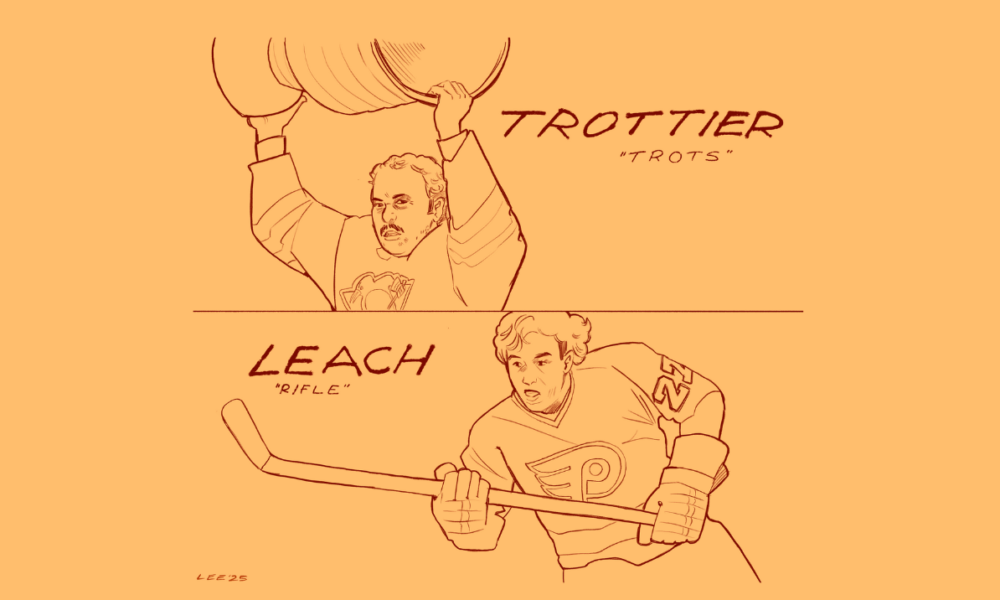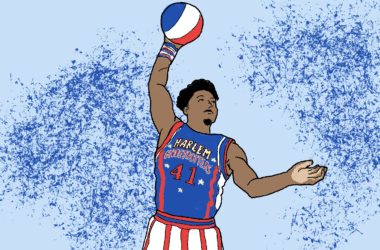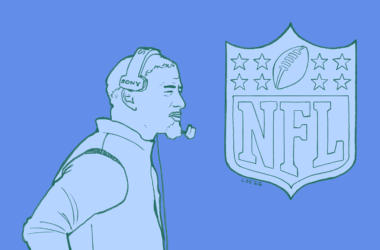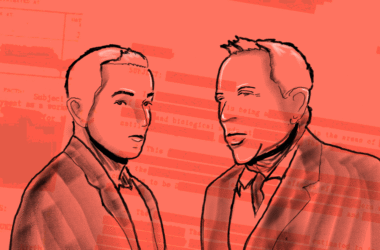Indigenous Peoples across North America have a long history of athletic excellence, with games such as lacrosse, canoeing, and snowshoe racing forming the foundation of many Indigenous cultures and communities. These sports were not only competitions, but also core actions that held spiritual, social, and practical significance for the Indigenous Nations in which they took shape. Today, Indigenous athletes continue to make their mark on the world stage, excelling in a range of sports, from the ring to the arena.
Figures like Mary Spencer, a three-time world champion boxer, Angela Chalmers, an Olympic medalist in track and field, Reginald Leach, a Stanley Cup champion and legendary hockey goal scorer, and Bryan Trottier, a Hall of Fame hockey player who won multiple championships, embody the strength, perseverance, and skill that are rooted in generations of Indigenous athletic excellence.
Mary Spencer, a member of the Chippewas of Nawash Unceded First Nation, has become one of Canada’s most accomplished boxers. She began her athletic career playing basketball, but when she stepped into a boxing gym as a teenager, she discovered her true passion. Spencer went on to dominate women’s boxing on the international stage, earning three world titles and competing at the 2012 London Olympics, where women’s boxing made its Olympic debut.
Beyond her athletic achievements, Spencer has been a role model and mentor for Indigenous youth, using her platform to promote empowerment, confidence, and the importance of chasing one’s goals. Her success story represents not only her personal dedication, but also the growing representation of Indigenous women in sports.
Angela Chalmers, from the Birdtail Sioux First Nation, is one of Canada’s greatest middle-distance runners. She came into the spotlight in the late 1980s and early 1990s, representing Canada at multiple international competitions; at the 1992 Barcelona Olympics, Chalmers won bronze in the 3,000 metres, becoming the first Indigenous woman to receive a medal in track and field on the Olympic stage.
Chalmers’ victory was not just personal but historic, as it marked a milestone in visibility for Indigenous athletes. She continued her streak of successes by winning gold at the 1994 Commonwealth Games in Victoria. Chalmers’ career stands as a powerful example of Indigenous athletes breaking barriers and inspiring future generations.
Reginald Leach, a member of the Berens River First Nation, had a legendary career in the National Hockey League (NHL) during the 1970s and 1980s. Nicknamed “The Riverton Rifle” for his powerful shot, Leach became one of the league’s highest goal scorers. His biggest achievement came in 1975, when he helped lead the Philadelphia Flyers to a Stanley Cup championship.
A year later, Leach made history by winning the Conn Smythe Trophy as the NHL’s playoffs’ most valuable player, becoming one of the few athletes to do so from a losing team. Leach’s success was especially meaningful given the barriers Indigenous players in Canada face in professional hockey. He has since dedicated himself to mentoring youth and promoting hockey in Indigenous communities.
Bryan Trottier, of Cree and Métis heritage from Saskatchewan, is widely regarded as one of the greatest hockey players in NHL history. Playing primarily for the New York Islanders, Trottier helped the team capture four consecutive Stanley Cup championships from 1980 to 1983. Over his career, Trottier scored more than 1,400 points to earn a spot in the Hockey Hall of Fame.
In addition to his remarkable hockey career, Trottier has always spoken proudly about his Indigenous roots, emphasizing the importance of representation and identity in his sports journey. After retiring as an NHL player, Trottier has continued to contribute to the game as a coach and mentor, ensuring that his athletic and cultural legacies extend to future generations.
Together, Mary Spencer, Angela Chalmers, Reginald Leach, and Bryan Trottier exemplify the incredible talent, resilience, and cultural pride of Indigenous athletes, who both further and commemorate a long lineage of Indigenous excellence in sport.









